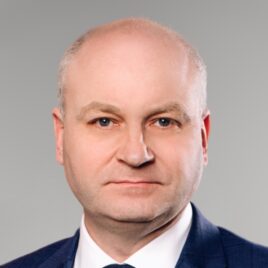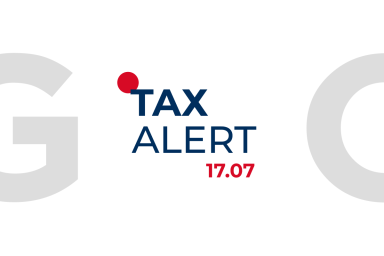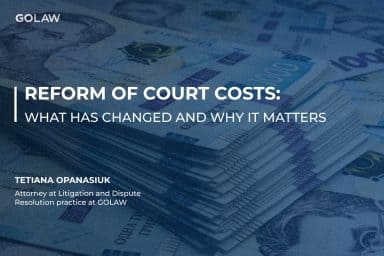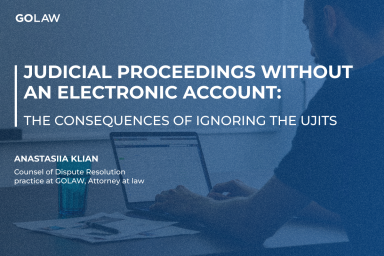The implications of the prosecutor’s decision to revoke the suspension of the pre-trial investigation: Supreme Court’s latest legal opinion
The procedural period is the safeguard of due process in criminal proceedings. The legitimacy of procedural decisions or actions depends on whether the statutory time limits have been complied with.
Despite the importance of the institute of the procedural period for criminal procedural law, certain aspects of its duration remain arguable.
Thus, the Criminal Procedure Code of Ukraine (hereinafter – the CPC of Ukraine) establishes that if the investigating judge revokes the decision to suspend criminal proceedings, the term from the date of its adoption to the date of its cancellation shall be included in the pre-trial investigation period.
However, the prosecutor, as a procedural supervisor, is also authorized to revoke illegal and unreasonable decisions of investigators, including decisions to suspend the pre-trial investigation. However, the CPC of Ukraine does not directly indicate the consequences of this decision for the procedural time limits.
The Supreme Court (hereinafter – the SC) in the decision dated June 6, 2023, in case No. 343/828/22 has recently clarified this matter. The court has established that the procedural consequences after both the investigating judge and the prosecutor canceling the suspension of the pre-trial investigation must be the same.
The essence of the criminal proceedings is that the person has been accused of committing criminal offenses under Part 1 of Article 122, Part 1 of Article 296 of the Criminal Code of Ukraine. The person has been notified of suspicion on January 23, 2022, and the pre-trial investigation had to end on March 23, 2022. However, the pre-trial investigation has been suspended on March 11, 2022, and the suspect has been put on the wanted list. The prosecutor later revoked this decision as illegal on April 25, 2022.
On April 26, 2022, the pre-trial investigation has been repeatedly suspended according to the investigator’s decision. The prosecutor then resumed the pre-trial investigation with a decision as of May 10, 2022. The investigating judge on May 11, 2022, upheld the defense’s motion and canceled the investigator’s decision as of April 26, 2022, to suspend the pre-trial investigation.
During the preparatory court hearing the first-instance court, having evaluated the circumstances of the proceedings, decided to close the criminal proceedings based on paragraph 10 of part 1 of Article 284 of the CPC of Ukraine. The prosecutor has appealed this decision to the courts of appeal and cassation, arguing that it constituted a significant non-compliance with the requirements of the CPC of Ukraine. In particular, the court has mistakenly concluded that the pre-trial investigation period expired. However, the Court of Appeal and the SC upheld the decisions of the previous instances.
In examining the legal consequences of suspending the criminal proceedings between March 11 and April 25, the SC has underscored that the prosecution made a procedural decision not to resume the pre-trial investigation but to revoke the suspension of the pre-trial investigation.
In this criminal proceeding, it has been the revocation, not the resumption of the pre-trial investigation by the prosecutor, of the investigator’s decision to suspend the pre-trial investigation that has been incorrect.
In this context, the SC has noted that the CPC of Ukraine does not deprive the prosecution of the opportunity to correct the mistakes made by revoking the procedural decisions. In addition, procedural errors of the prosecution cannot restrict the rights and interests of the defense.
The SC has established that the prosecutor’s and investigating judge’s decisions to revoke the suspension of the pre-trial investigation are equivalent in legal nature. Therefore, their procedural consequences must be the same.
Thus, the SC has concluded that if the prosecutor revokes the investigator’s decision to suspend the criminal proceedings, the term from the date of this decision to the date of its revocation by the prosecutor shall be included in the pre-trial investigation period. In this regard, referring to the circumstances of the criminal proceedings, after the prosecutor canceled the investigator’s decision to suspend the pre-trial investigation of March 11, 2022, on April 25, 2022, the period from March 11 to April 25 must be included in the pre-trial investigation.
The SC has ruled that April 25, 2022, is a date beyond the two-month pre-trial investigation term from the moment of notifying a person of suspicion, which expired on April 23, 2022. It is illegal to make any procedural decisions, including submitting an indictment to the court, in this criminal proceeding after this date.
Therefore, with this legal opinion, the SC has overcome procedural uncertainty by unifying the consequences of the cancellation of the decision to suspend the pre-trial investigation by both the investigating judge and the prosecutor. This standpoint is consistent with the objectives and fundamentals of criminal proceedings.
Find more current court positions, key legislative changes, and insights on Criminal Law in Ukraine at 👇

Igor Glushko
Partner, Head of Criminal Law and White Collar Defence practice, Attorney at law
- Contacts
- 31/33 Kniaziv Ostrozkykh St, Zorianyi Business Center, Kyiv, Ukraine, 01010
- i.glushko@golaw.ua
- +38 044 581 1220
- Recognitions
- The Legal 500 EMEA 2023

Kristina Kolchynska
Counsel, Attorney at Law
- Contacts
- 31/33 Kniaziv Ostrozkykh St, Zorianyi Business Center, Kyiv, Ukraine, 01010
- k.kolchynska@golaw.ua
- +38 044 581 1220
Sign up to be aware
New achievements are inspired by information. GO further, don’t miss out GOLAW news and legal alerts
Our expertise
-
- Antitrust and Competition
- Banking and Finance
- Compliance, Corporate Governance and Risk Management
- Corporate and M&A
- Criminal and White Collar Defence
- Defense in Anti-corruption procedures and regulations
- Labor and Employment
- Natural Resources and Environment
- Government Relations (GR)
- Insolvency and Corporate Recovery
- Intellectual property
- International trade
- Legal support of business and private Сlients in Germany
- Litigation and dispute resolution
- Private clients
- Real Estate and Construction
- Energy and Natural Resources
- Restructuring, Claims and Recoveries
- Martial Law
- Tax and Customs
-
- Agribusiness
- Aviation
- Chemical industry
- Engineering, Construction and Building Materials
- Natural Resources and Environment
- Financial institutions
- IT and AI
- Industry and manufacturing
- Healthcare industries, Life sciences and Pharmaceuticals
- Media, Entertainment, Sports and Gambling
- Retail, FMCG and E-Commerce
- Transport and Logistics
We use cookies to improve performance of our website and your user experience.
Cookies policy
Cookies settings







